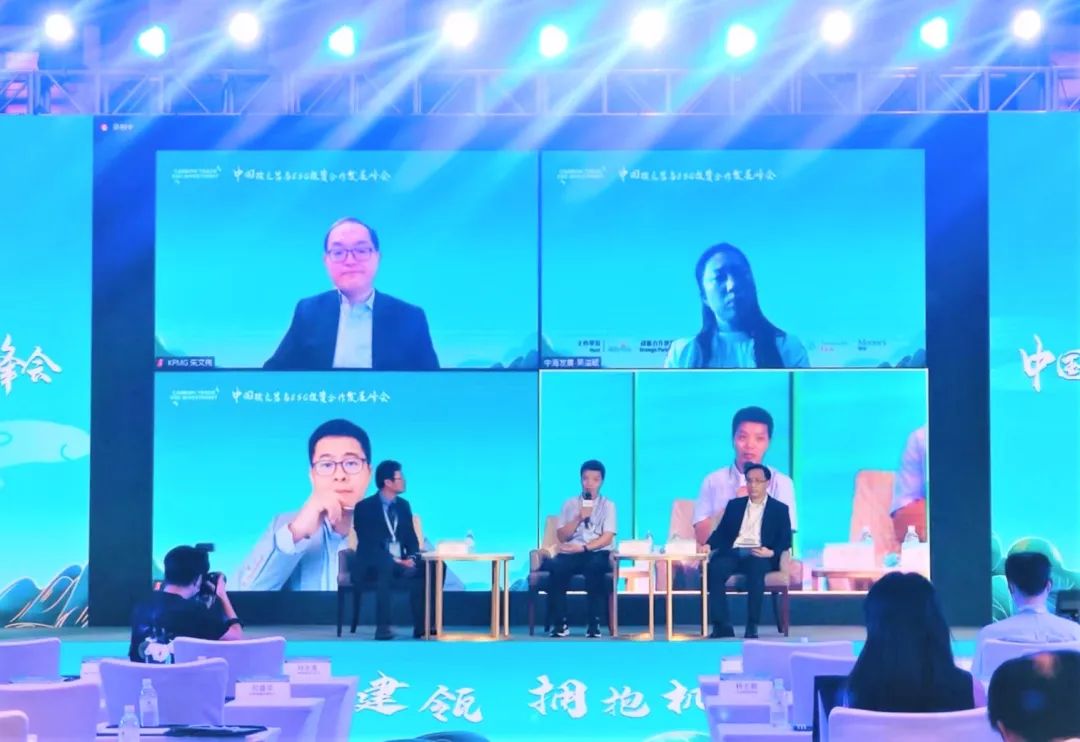Climate Bridge Invited to Participate in the Annual China Carbon Trade & ESG Investment Development Summit 2022
Time:2022-07-14
 View:565
View:565
We enjoyed participating in the Annual China Carbon Trade & ESG Investment Development Summit 2022 held in Shanghai. Jointly organized by a number of leading organizations, including the China Financial Advanced Forum (CFAF), KPMG, Dentons, Fitch Ratings, and Sustainable Fitch, this summit was an important gathering for China’s carbon market and ESG industry.

Our General Manager, Gao Zhiwen, was invited to speak on one of the event’s key panel discussions: “In the context of ESG, how can all companies adjust their strategies and prepare for the impact of ESG”. Based on Climate Bridge’s extensive and multifaceted experience, he outlined three key actions for businesses to adopt:
1. Understand global climate norms: A myriad of international standards and norms, like ESG, CDP, SBTi, and RE100, are at play in the fight against climate change. These are instrumental for the evolution of multinational and export-driven entities in China. We urge local enterprises to immerse themselves in these guidelines to remain ahead of the curve.
2. Be proactive: The urgency of addressing climate change cannot be overstated. We believe that early engagement allows companies to master the standards and set up timely action plans. Not to mention, proactive initiatives prove to be more cost-efficient, as showcased by the trends across domestic and global carbon market prices.
3. Adopt a phased carbon management approach: Effective carbon management is a multi-stage process. Companies should begin by assessing their intrinsic carbon impact, devise reduction blueprints, and set sights on achieving internal operational carbon neutrality. The learnings from which should then broaden to a holistic understanding of one’s supply chain emissions. The final step is to then foster a carbon-conscious supply chain that assists suppliers to streamline their processes in a carefully eco-friendly manner.
While ESG poses a range of challenges in today's rapidly evolving corporate ecosystem, it’s undeniably a propellant for sustainable innovation. We encourage domestic organizations to familiarize themselves with this space and its implications.












